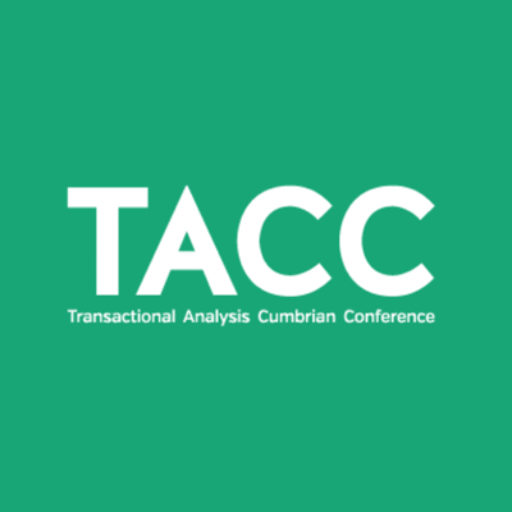Transactional Analysis Cumbrian Conference – Saturday, 22 February 2025
Online Programme
We continue offering an online conference as we did during the COVID-19 pandemic. The conference will be run alongside our in-person conference, and you can join us online via Zoom.
If you sign up for the online conference, you will need a computer, tablet or phone capable of running Zoom, which can be freely downloaded here.
https://zoom.us/download#client_4meeting

MORNING WORKSHOP SESSION – ONLINE CONFERENCE
Click on the presenters name and workshop title for more information
Katherine Uher - Relational Impacts of Institutional Discrimination in the Post-Truth Era in the Neurodivergent Community
Sunila Nambiar - Tools of the Mind: Navigating the Cognitive Landscape in the Digital Age
In today’s digitally connected world, the internet has become an essential tool for communication, learning, and work. However, as Nicholas Carr outlines in his book The Shallows, these tools are also reshaping how our minds function, and not always in ways that support deep, critical thinking. This workshop, titled “Tools of the Mind: Navigating the Cognitive Landscape in the Digital Age”, will provide participants with an in-depth exploration of Carr’s key insights into how the internet and digital tools alter our brains’ neural pathways, affect our ability to concentrate, and impact our memory.
Using the chapter “Tools of the Mind” from The Shallows as a foundation, the workshop will engage participants in discussions and activities designed to highlight the cognitive shifts that occur with the use of modern digital tools. It will also explore the concept of neuroplasticity, the dangers of multitasking, and the importance of deep, contemplative thinking in an age of constant distraction.
Participants will leave with a better understanding of how to strike a balance between benefiting from the internet’s wealth of information and preserving the depth of thought necessary for critical thinking and creativity. Practical strategies will be offered to help attendees mitigate the adverse cognitive effects of overreliance on digital tools.
Emma Haynes - Panel Discussion - Connections in a post-truth era: holding hope within mental health with Dr Emma Haynes (PhD - Psychotherapy; TSTA-P; UKCP accredited Psychotherapist; Honorary Research Fellow) , Valeria Villa CTA-P , Oliver Hunt CTA-P, Mihaela-Leocadia Hartescu CTA-P , Isa Delannoy
We bring our experience as a research and study group in perinatal mental health, led by Dr Emma Haynes – where we have witnessed the power of the group as a container of reflection and critique. Our co-created discussion incorporates reflexivity, creativity and meta-cognitive skills to navigate and integrate the themes of parenting, childlessness (chosen, or not) and mental health. Through etymology and creativity, we will attempt to deconstruct and explore beyond our assumptions to reconnect with our intuition.
Hope is a thread for the panel; we see our work as ‘holding hope’, particularly with the current challenging political, social and world events. Join us on this journey!
Adam Bekier - Online meeting in Berne's secret garden: Artificial intimacy or deep therapeutic work?
Online work brings both new possibilities and limitations. Berne’s concept of the secret garden deals with the deepest elements of intrapsychic structure. In this workshop, participants will learn how this concept can be applied to the therapeutic relationship, including online work, and how online work can affect the therapeutic process and the therapeutic alliance. Participants will have the opportunity to discuss their understanding of the “secret garden.” Drawing on the concepts of integrative AT and relational attunement, they will explore methods of navigating the client’s secret garden while maintaining awareness of their own within the therapeutic boundaries.
AFTERNOON WORKSHOP SESSION – ONLINE CONFERENCE
Click on the presenters name and workshop title for more information
Nea Clark - Procrastination - Motivation - Dopamine: How to support our Neurodivergent clients
Piotr Jusik - Solidifying the Liquid Self: Technology, Culture, and the Digital Nomad
This workshop investigates the intricate relationship between technology, culture, and place in the context of digital nomadism. Drawing on Bauman’s concept of liquid modernity, we will examine the advantages and challenges of this lifestyle, including issues of exclusion, belonging, and the evolving meanings of time and space. Through a series of experiential exercises, we will explore how the online and offline words create new identities of digital nomadism in today’s world. Lastly, we will reflect on the possible antidotes to the challenges of liquid modernity, where distress tolerance and bounded instability can create a container for the unforeseeable.
Alex Piotrowska - Connecting Body and Heart - embodiment of emotions in the virtual network
We are a body, not just a mind. That’s why working with the body is one of the quickest and most effective ways to facilitate change and access emotions. The body gives insight, gets clients unstuck, but WHERE to start? It can be confusing to know HOW exactly to work with the body online.
Perhaps you know the power of embodiment techniques, but would like a simple, effective system that gets concrete results with all kinds of client. There will be space for your own embodied exploration and specific tools for common problems, like low confidence, poor self-care or poor boundaries
Anna Zuykova - Touching the forgotten - integration of traditional healing practices into TA psythotherapy
Contemporary world gives us and our clients new challenges and requests, which invite us to look for new responses and new tools, from artificial intelligence to ancient healing practices.
The workshop is meant to open a space for discussion of how we response and which tools and models developing? Which new or forgotten practices can we implement to therapeutic process? How can we create safe space and clear boundaries while doing it? How does it influence therapeutic relationship? Which benefits and vulnerabilities does it bring?
The workshop author has personal interest in traditional healing practices and implementing them into TA practice with individuals and groups.
